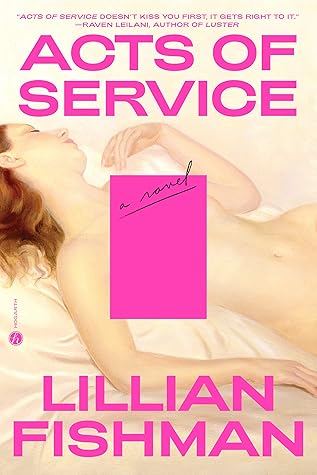More on this book
Community
Kindle Notes & Highlights
The poles of Romi’s nobility were her self-sacrificing nature and her absolute insusceptibility to the superficial. From a young age, she had prized a sense of competence and the belief that she was capable of making a significant social contribution. After toying with the possibility of a political career, she had decided to pursue pediatrics. In her off-hours she volunteered as an EMT. She was so preoccupied with her vocation that she was immune to beauty. The concept hadn’t occurred to her outside an introductory art-history course. Her choices were made on the basis of function. The
...more
My friends and I were raised without real religion and without a comparable ethics of living through which to filter our beliefs and ambitions. We had grown up with enough money to prevent us from fearing a future in which we would struggle to survive; we had apartments with windows that opened onto streets where, in our Brooklyn neighborhoods, trees and sidewalk gardens bloomed dispassionately in the warmer months. Often we did not have the jobs we dreamed about, but more often we were not quite sure what we should dream about. It was no longer defensible to build a life around acquiring
...more
I envied extraordinarily religious people, who subscribed to a code that determined the things they should want, the things that were good, and the things that were bad. They had these measures of certainty. And they had rituals that made their lives feel governed by the logic of time: baptisms, holidays, weekly ceremonies, recitations, prayers. They were, I imagined, striving toward a set of impossible ideals and yet constantly forgiven for their failure to achieve. What better way could there be to live? To be in constant motion toward something perfect, a motion that would carry you to the
...more
I admired uniforms, which signaled a singular belief in duty or in the life of the mind to the exclusion of vanity (whenever I saw Romi in scrubs I felt a surge of deference). I admired the lives of activists, who chose or found a belief that appeared unimpeachable and structured all their efforts around its requirements. But what could I possibly believe in that was unimpeachable?
Something enters the center of your life. Sometimes it is a ubiquitous though painful loss, or a persistent fixation on your own inadequacy in the face of this large and agreeable life and its endless opportunities. A life knows that it needs a shape and, taking cues from films and lives it has glimpsed, chooses a core around which to bend itself. A life recognizes the theater in which its keeper appears most real. Against all my better rationales, my life recognized sex.
From our first meeting he seemed to me so self-contained, so finished, that I couldn’t imagine he would ever find himself at someone else’s mercy. His resting expression was simultaneously placid and amused, his gestures unhesitating. Next to him I felt almost transparent. When I watched the way he treated Olivia I began to suspect that what he relished most was drawing out a person’s emotions and desires while remaining completely untouched by them.
I thought it would require much more of me, Nathan said. I didn’t feel that I could do it the way Olivia does—going home to paint after work. This kind of double life. I felt that if I was going to do it, I would have to give my life to it and live in an entirely different way. And I didn’t want to.
She was obsessed with the way he made decisions, spoke to people, moved—as though he had never experienced doubt. She was a person who left coffee shops when they were too crowded or the baristas seemed disgruntled.
Most people are impossible, Nathan said. When you talk to them it’s absolutely tedious. You don’t get at who they are at all. At best they’re recycling lines from The Atlantic, at worst from the Post. They aren’t honest—they don’t know what they’re doing, they’ve just picked up all these little signals as to how to act. But when you fuck them—everyone is interesting to fuck.
I lay there, my whole being collected into the inch of skin on my shoulder where his fingers rested. My room was small and strange. How was it that I thought of it as my home and believed that it belonged to me? It was just a temporary space that I had hung with things I’d purchased, so that I could believe I was safe inside it. And this was true, too, of everything I had believed about myself: that I was moral, that I was political, that I cared for the realities of strangers who were linked to me by parallel circumstance. These were beliefs I had pinned up so that I could imagine that I
...more
I had always thought that freedom was the power to understand what I could and live by it—to talk myself into things. It seemed to me now that freedom was the strength and the space to follow what moved me. What I had to reconcile myself to was being subject to my emotion, which I would always be striving to comprehend. What better way could there be to live? To be in constant motion toward something perfect, a motion that would carry you to the end of your life?
We love what disturbs us if it chooses us and tells us how we matter.


